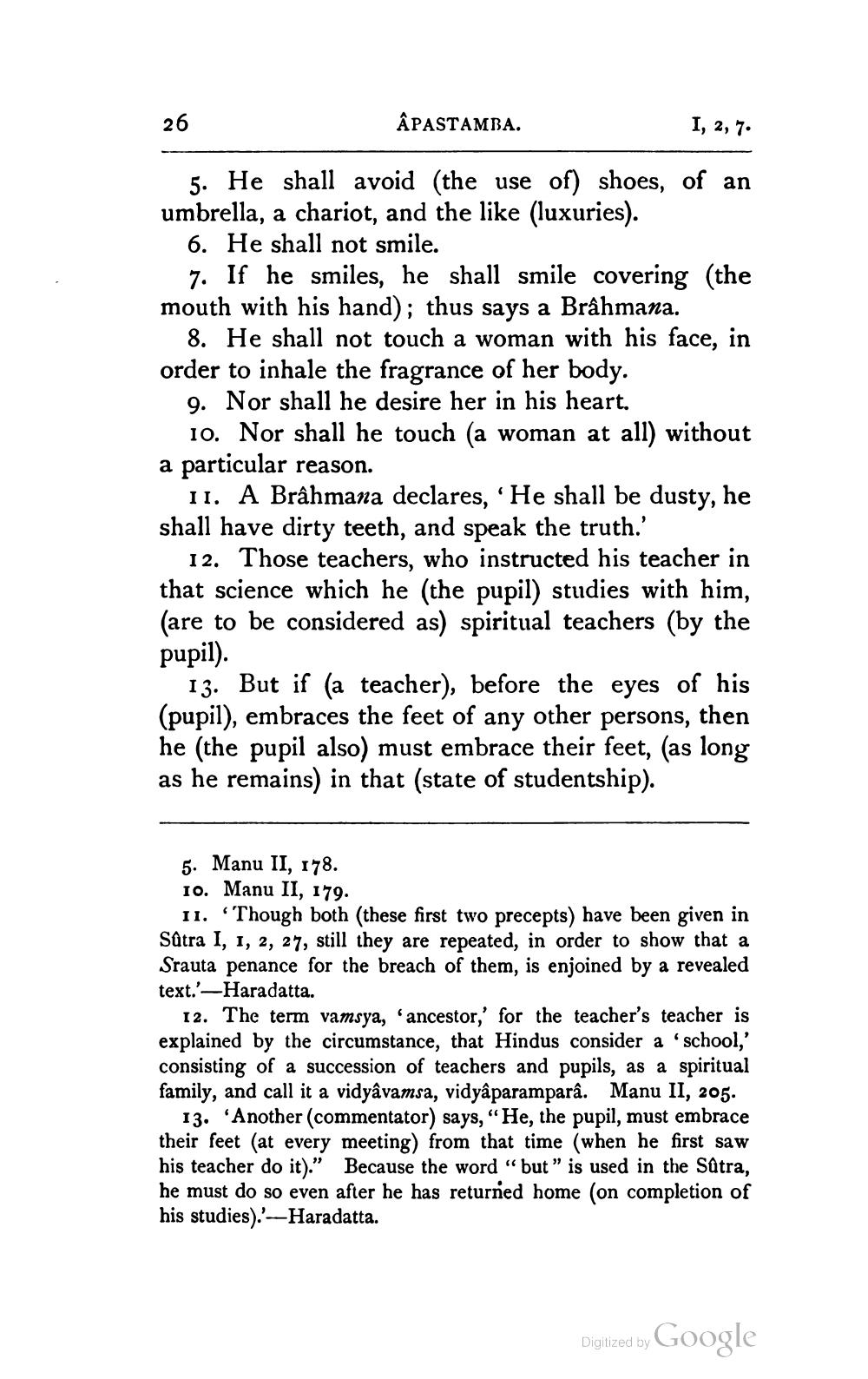________________
ÂPASTAMBA.
I, 2, 7.
5. He shall avoid (the use of) shoes, of an umbrella, a chariot, and the like (luxuries).
6. He shall not smile.
26
7. If he smiles, he shall smile covering (the mouth with his hand); thus says a Brahmana.
8. He shall not touch a woman with his face, in order to inhale the fragrance of her body.
9. Nor shall he desire her in his heart.
10. Nor shall he touch (a woman at all) without a particular reason.
11. A Brahmana declares, 'He shall be dusty, he shall have dirty teeth, and speak the truth.'
12. Those teachers, who instructed his teacher in that science which he (the pupil) studies with him, (are to be considered as) spiritual teachers (by the pupil).
13. But if (a teacher), before the eyes of his (pupil), embraces the feet of any other persons, then he (the pupil also) must embrace their feet, (as long as he remains) in that (state of studentship).
5. Manu II, 178.
10. Manu II, 179.
11. Though both (these first two precepts) have been given in Sutra I, 1, 2, 27, still they are repeated, in order to show that a Srauta penance for the breach of them, is enjoined by a revealed text.'-Haradatta.
12. The term vamsya, ancestor,' for the teacher's teacher is explained by the circumstance, that Hindus consider a 'school,' consisting of a succession of teachers and pupils, as a spiritual family, and call it a vidyâvamsa, vidyâparamparâ. Manu II, 205.
13. Another (commentator) says, "He, the pupil, must embrace their feet (at every meeting) from that time (when he first saw his teacher do it)." Because the word "but" is used in the Sûtra, he must do so even after he has returned home (on completion of his studies).'-Haradatta.
Google
Digitized by




